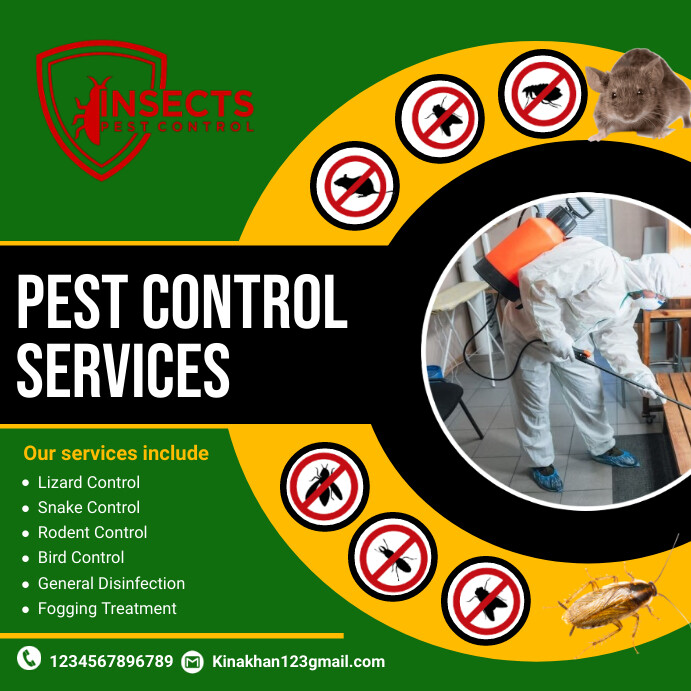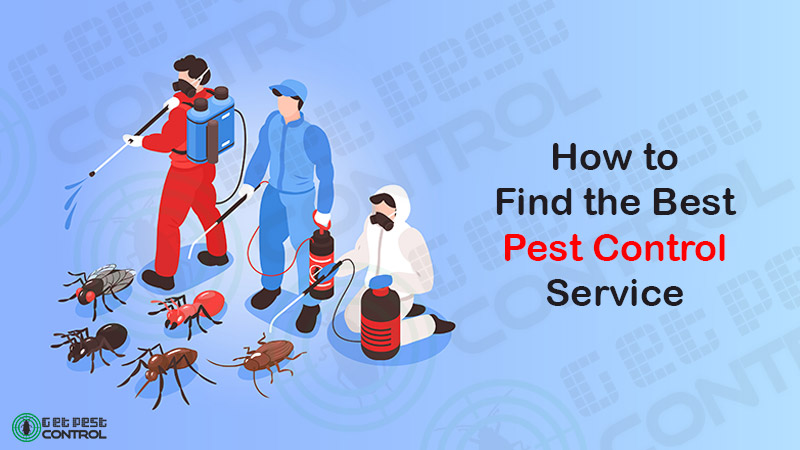Pest Control Auckland Professionals: Secure Your Home from Infestations
Wiki Article
Recognizing Various Sorts Of Insect Control Approaches and Their Effectiveness
The administration of insects is a vital element of preserving the wellness and stability of numerous settings, from farming fields to property homes. When considering pest control methods, it is vital to understand the varied methods offered and their varying degrees of effectiveness. From chemical interventions to organic options, each method presents unique advantages and limitations. By exploring the nuances of these pest control approaches, a detailed understanding of exactly how to resolve insect problems can be created.Chemical Pest Control Techniques
Chemical insect control methods play a crucial duty in efficiently managing and eliminating pest problems in different settings. One of the crucial benefits of chemical bug control is its ability to offer quick and targeted options to pest issues. Pest Control Auckland.However, it is vital to think about the possible risks and downsides related to chemical bug control methods. Overreliance on chemicals can result in the growth of chemical resistance in insects, making them more challenging to control over time. Furthermore, the usage of certain chemicals can have damaging impacts on non-target microorganisms, the atmosphere, and human health if not applied properly.

Organic Insect Control Methods
Utilizing natural predators and pathogens to handle parasite populations properly, biological bug control methods use a lasting and green strategy to pest monitoring. By introducing or advertising the task of organisms that normally exploit or infect parasites, such as ladybugs for aphid control or certain microorganisms for caterpillar infestations, biological control can aid preserve parasite populaces at workable degrees without the requirement for artificial chemicals. This approach is especially helpful for natural farming methods, as it avoids using possibly hazardous compounds while preserving plant wellness.
Physical Bug Control Approaches
While biological pest control approaches concentrate on harnessing natural predators and pathogens, physical bug control techniques use physical and mechanical obstacles to take care of parasite populaces. These techniques are usually thought about eco-friendly as they decrease making use of chemicals. Physical bug control consists of strategies such as capturing, making use of obstacles like nets or screens, and physically eliminating parasites from the area.Catches are commonly used in physical parasite control to record and eliminate pests like insects and rodents. An additional physical method is the usage of barriers such as webs, displays, or fencings to protect against parasites from entering or infesting particular locations.
Natural Parasite Control Techniques
Incorporating plant-based repellents and all-natural killers is a key strategy in applying effective all-natural pest control methods. By motivating the existence of helpful bugs like ladybugs, lacewings, or predatory mites, gardeners can naturally regulate pest populaces. These killers feed on common yard parasites such as mites, aphids, and caterpillars, aiding to keep a balanced ecological community without the requirement for chemical interventions.
In addition, executing social techniques such as crop turning, buddy planting, and maintaining view it proper plant health can likewise boost the performance of all-natural parasite control techniques. These methods not only assist in avoiding insect invasions yet likewise promote biodiversity and overall community durability. By integrating these all-natural strategies, individuals can efficiently take care of bugs while reducing environmental effect.
Integrated Bug Monitoring (IPM) Approach
Applying an Integrated Bug Monitoring (IPM) approach is necessary for properly managing pest populations while lessening dependence on chemical pesticides. IPM is a detailed and sustainable technique that combines various bug control methods to attain long-lasting options. This strategy concentrates on tracking, control, and avoidance to address parasite issues in an eco-friendly manner.IPM integrates organic, social, physical, and mechanical techniques with the critical and restricted use chemicals when needed. By stressing positive actions such as habitat modification, biological control, and exemption, IPM aims to minimize insect populaces and their influence on you can try here the ecological community. Normal tracking is important in IPM to assess insect levels properly and determine the most proper control methods.
Among the key advantages of IPM is its capability to reduce the threats connected with excessive chemical use, such as ecological contamination and damage to non-target organisms. In addition, IPM promotes a more alternative method to pest administration by thinking about the total ecosystem dynamics. In general, the IPM method uses a lasting and reliable remedy for pest control while promoting environmental duty.
Conclusion
In conclusion, comprehending the different types of bug control techniques and their efficiency is essential in efficiently handling pest invasions. Integrated Bug Monitoring (IPM) approach, which integrates different approaches for lasting bug control, is increasingly being identified as a all natural and ecologically friendly service.Chemical pest control methods play a crucial function in efficiently taking care of and eradicating pest problems in numerous environments.Making use of all-natural killers and virus to take care of parasite populations properly, organic insect control methods supply a sustainable and environment-friendly method to pest management. By promoting the task or presenting of organisms that naturally prey on or infect parasites, such as ladybugs for aphid control or specific germs for caterpillar infestations, organic control can help keep parasite populaces at workable levels without the demand for synthetic chemicals.While organic bug control approaches focus on taking advantage of natural killers and pathogens, physical parasite control approaches use physical and mechanical obstacles to handle parasite populations. Integrated Insect Management (IPM) technique, which incorporates numerous approaches for lasting parasite control, is significantly being acknowledged as a alternative and eco friendly remedy.
Report this wiki page